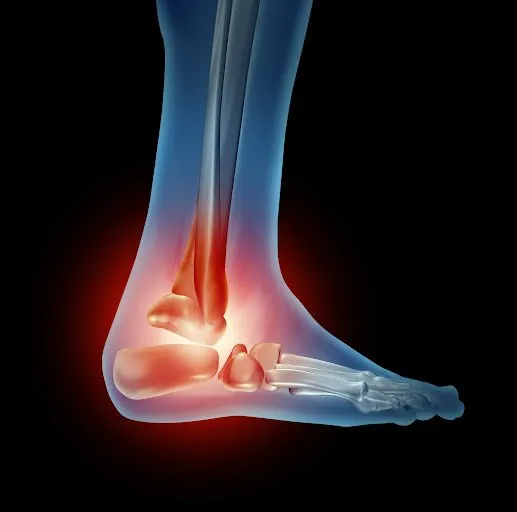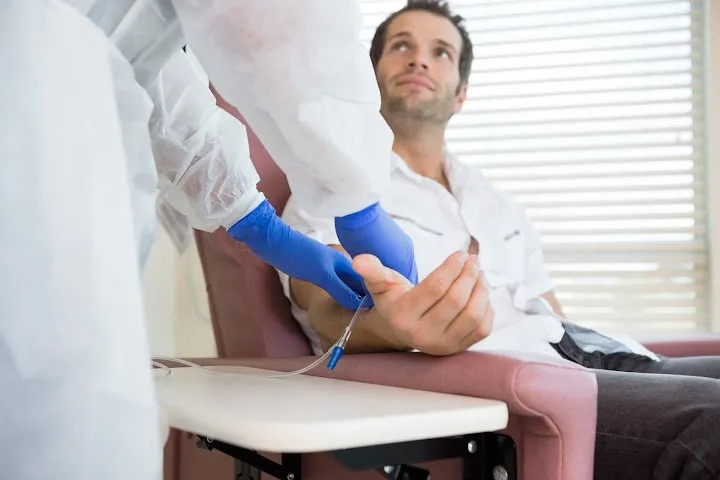Excellence in Rheumatology Care since 1977. Accepting New Patients
Nov 03, 2021
Joint pain is perhaps the most prominent symptom of rheumatoid arthritis (RA), but the presence of joint discomfort can also indicate the presence of a variety of other conditions. Seemingly similar conditions that mimic rheumatoid arthritis may also bring on other hallmark RA symptoms, such as fatigue, swelling, or stiffness, which can make a diagnosis tricky for providers to nail down.
Only a qualified medical provider can accurately diagnose rheumatoid arthritis or the conditions that feature similar symptoms. However, you may want to know which conditions may also be considered during the diagnostic process.
1. Lupus
Rheumatoid arthritis (RA)and lupus are both autoimmune diseases. The symptoms manifest in flare-ups that can affect joints and result in pain, stiffness, and swelling. The symptom flares of lupus and RA both peak for a period of time, followed by a mellower period where they’re far less severe.
However, lupus inflammation typically affects more than just your joints; it impacts your brain, organs, blood vessels, and soft tissues as well. Your provider may suspect lupus if you also have a skin rash shaped like a butterfly and inflammation that appears to be more widespread than RA.
2. Fibromyalgia
A diagnosis o f this chronic pain disorder is often one of elimination. Fibromyalgia is a condition in which the brain interprets pain signals as more severe and the nerves overreact with intensified, widespread pain throughout the body. In both rheumatoid arthritis and fibromyalgia, patients experience intense pain and fatigue.
Only in RA will adult patients see swelling, as fibromyalgia only results in bodily tenderness. While it causes musculoskeletal pain, fibromyalgia is not an autoimmune or degenerative disease and won’t result in joint or bone degradation as RA does.
3. Gout
This intensely painful form of arthritis is a result of a buildup of uric acid in the bloodstream. On the surface, gout and rheumatoid arthritis look similar due to joint swelling and severe pain. Gout can develop over time and can be caused by kidney disease, alcohol intake, diuretics, illness, or injury.
The symptoms of gout will typically appear in one area and on one side, usually in the foot, while pain in RA is symmetric and usually found in several different regions in the body.
4. Osteoarthritis
This condition is degenerative, much like rheumatoid arthritis. Unlike, RA, however, pain in osteoarthritis is caused by the wearing down of the cartilage that cushions joints rather than an auto immune response, and it can be triggered either by over use a nd injury.
Osteoarthritis and RA symptoms may both be worse following a period of idleness, and joints may be more painful and stiff for a period of time. A diagnosis of osteoarthritis may belikely if pain and stiffness are also worsened after over use and in the absence of other RA-typical symptoms, such as fatigue.
5. Lyme Disease
Transmitted through tick bites, Lyme disease causes fatigue, fever, rashes, and arthritis in the majority of patients. Providers may suspect either Lyme disease or RA in patients that develop pain and swelling in both larger joints, such as the knees and the joints of their feet and hands, but in Lyme disease, antibiotics can be used to treat related arthritic symptoms.
Patients with suspected Lyme disease are given medications to combat the bacterial infection in the hopes that arthritis symptoms will improve in about a month. Joint pain in Lyme disease will usually improve with medication, while RA pain remains unaffected by antibiotics.
6. Psoriatic Arthritis
This arthritic condition typically affects those who already have psoriasis, a skin condition that is characterized by patches of scaly, itchy skin. Both psoriatic arthritis and rheumatoid arthritis are auto immune conditions that involve pain, swelling, and stiffness and that have periods of symptom flare-ups.
Patients with psoriatic arthritis usually have related skin symptoms, but this is not always the case. This can make a differential diagnosis hard for providers unless they look carefully at locations of pain and swelling, as some differences in affected locations can aid the diagnostic process.
If you suspect any of the above conditions, call the providers at Sarasota Arthritis Center. Our qualified professionals can diagnose your symptoms and develop a treatment plan to keep them under control.

Winter Weather and Arthritis: 4 Key Considerations
Individuals who suffer from arthritis must often think about aspects of their everyday lives that those with healthier joints can take for granted, including the change of seasons.

What You Should Know About Sjogren’s Syndrome
Almost no one enjoys coping with the occasional dry mouth or dry eyes, natural consequences of arid environments, certain medications, or temporary dehydration from not drinking enough water.

Infusion Therapy for Arthritis: 3 Key Points
Arthritis can take many forms, from the targeted joint degeneration commonly seen in osteoarthritis to inflammatory conditions such as rheumatoid arthritis, reactive arthritis, gout, and psoriatic arthritis.



We are able to see patients by appointment only. If you need to cancel an appointment, please contact our office at least 24 hours in advance. To expedite the check-in process prior to your appointment, please complete the pre-registration paperwork that will be emailed and texted to you through Phreesia. Please bring your insurance cards, method of payment, and identification with you to every appointment.